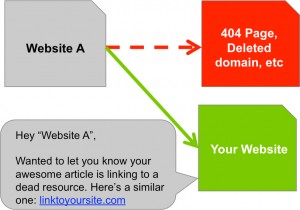Local SEO competition is heating up. 2018 is the year for you to really raise your local SEO game to enjoy the sweet fruits of high visibility for local searches on Google. Here are 5 strategies you can trust.
1- Capture Your Space on All Local Business Directories
Did you know – 80% consumers rely on online searches for choosing local businesses! However, not many local businesses claim their local business listings. Those that do, however, have a lot to gain. Before the local SEO search space becomes saturated, make sure that you get the early mover advantage. Here’s what you need to do:
- List your local business on top local business directories; Yelp, Citysearch, and Merchant Circle are obvious starting points.
- Make your business profiles as complete as possible.
- Use this HubSpot list of high-value business directories (50 of them) and start creating your business pages on these, 5 a day.
- Check your local newspapers and Chamber of Commerce (or equivalent agencies) websites for possibilities of creating your listing.
- Make sure your business’ NAP (name, address, and phone) is consistent, and list it on aggregator networks like Infogroup, Neustar, and Factual.
- Hunt down any niche specific directories for your business and make sure you secure your listings there before anything else.
2- Leverage the Power of Local Link Building
Is there anything of this sort? Yes, indeed. This is one of the best-kept secrets of local SEO that only the most seasoned local SEO experts are good at. Link building for local SEO is different from link building in general because you get a lot of value from local links even if the niche of the backlink source website is not linked to your business. Because in local business, relationships hold a key position, this reflects in Google’s search algorithm for local SEO. Getting local backlinks, however, requires you to get off the cushioned seat and take your marketing to the ground. Here are some suggestions:
- Look for local sponsorship opportunities
- Organize a donation drive
- Get involved in local community events and then their websites
- Be active on local newsgroups and portals
- Look for creative low-cost advertisements on local classifieds
3- Measure Your Store Branding Campaigns For Better Returns
We talked about all kinds of local events, giveaway, and community efforts you can engage in with the aim of getting local mentions of your business. This can be expensive, particularly for local businesses only getting started with SEO. This is where the need for focused measurement of store branding execution campaigns comes to the fore. This is where brands have to gain a lot from local retail store process automation and reporting tools like Zipline. Using this tool, store managers can set up campaigns to measure success (subscriptions, footfall, inquiries, purchases, etc). Zipline also helps bring together information and analytics from all channels together, enabling local stores to leverage their marketing collateral from across locations for inexpensive yet consistent branding and promotions.
4- Focus on Reviews and Ratings
A recent survey done to gauge Internet users’ behaviors in the context of reviews and ratings of local businesses revealed these insights:
- 70% users are willing to leave reviews and ratings if asked to.
- 84% people trust online reviews and ratings before making purchase decisions.
To leverage the power of reviews and ratings for local SEO benefits,
- Focus on getting reviews on your Google My Business page, and Facebook business page.
- Use a social media listening tool to be alerted whenever your brand is mentioned online, and use these opportunities to request users to leave reviews.
- Use schema markup to showcase your reviews and ratings in search results.
5- Use Local Structured Data Markup
We mentioned structured data earlier; here’s more on it. Less than one-third websites use structured data properly, in spite of several indications from Google that it likes websites that do so. Google offers pretty useful tools to help you start using structured data, whether it’s Structured Data Testing Tool to check the correctness of markup or Data Highlighter that helps with markup content using a mouse instead of coding. Here’s a pretty useful guide to local schema; read it and execute it in 2018.
Use these 5 strategies to turbo-charge your local SEO efforts and beat competitors at it.
Digital & Social Articles on Business 2 Community(69)








